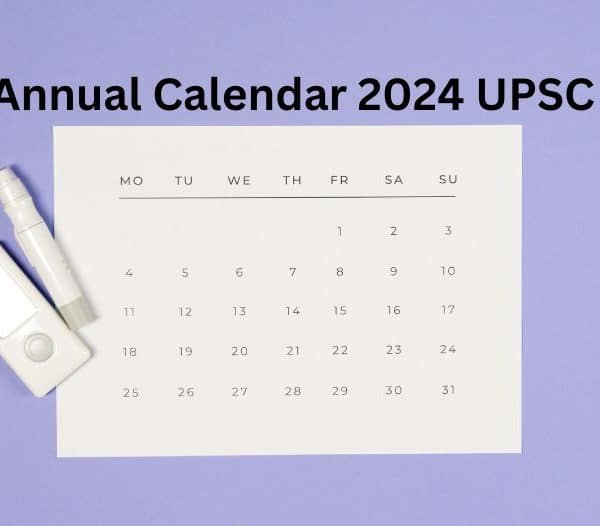UPSC exams are one of the most honoured exams in our country. The UPSC Civil Services Exams (CSE) is conducted nationwide to select and recruit officers for civil services and services for the Government of India. These Civil services include various principal authorities like the Indian Police Service (IPS), Indian Administrative Service (IAS), Indian Foreign Service (IFS), etc.
It is undoubtedly one of the most prestigious and rewarding exams nationwide, where thousands of applicants apply every year. Thousands of dreams are cherished, and thousands face a setback. Though there are a lot of myths concerning that UPSC is challenging and is impossible to achieve. Numerous thoughts like ‘Is UPSC hard?’, ‘Is UPSC easy?’, or ‘Is it achievable or not?’ revolves in the mind of aspirants.
So, is it hard to pass the civil services exams? In the discussion below, we will break down how difficult the UPSC is and whether the UPSC exam is easy or tough.
How many Candidates Appear for UPSC Seriously?
If we go by facts, then on average, 10 lakh candidates apply for UPSC every year for close to 900 vacancies only. It might sound tough. However, among these 10 lakh applicants, close to five lakh don’t even appear for the UPSC Preliminary exams.
With every single attempt, your chances of clearing the UPSC exams increases. It is seen that, on average, it doesn’t take more than 3 to 4 attempts for any candidate to clear the UPSC exams successfully.
epcl_custom_ads id=”1″]
Also Read: How to Study Geography for UPSC? A Step-by-step Guide to Study Geography for Mains and Prelims
What Makes UPSC Competitive?
The most competitive aspect of the UPSC is its exam pattern which includes three stages:
Stage 1: UPSC Prelims (MCQ type)
Stage 2: UPSC Mains (Subjective type)
Stage 3: UPSC Board Interview
With each stage, the difficulty level goes up, and the candidate has to pass each step to move onto the next. The UPSC Board Interview is considered burdensome. Here, your UPSC knowledge, current affairs, and international affairs tested not only tested but the personality and ability traits as well.
It is seen, on average, 25% of candidates clear the UPSC Prelims, and move onto the UPSC Mains and close to 15% of candidates unplug the Mains and appear for the interview stage.
The UPSC syllabus also makes it competitive as questions from a broad and diverse range of knowledge and subjects covering different fields, industries, and sectors are there. Does this generally cause doubts in the minds of UPSC of how difficult is UPSC?
How are Vacancies Allocated between Merit and Reservation?
In the year 2020, a total of 180 vacancies were there for Indian Administrative Services (IAS), of which 72 vacancies were for the general merit-based category, and the rest were for the reserved category.
Out of the selected candidates, the reservation-based category candidates are allotted 59.5% of vacancies, whereas the general merit-based category candidates are allotted 40.5 % vacancies. The reservation-based category candidates consist of SCs, STs, OBCs, EWS, and PwBD sections.
Also Read: Global Climate Risk Index 2021: Check out these Important Points for the Upcoming UPSC Examination
Is it Achievable?
In the last five years, the highest percentage scored by an All-India-Rank 1 was 55% per cent only. By scoring even 48%-50%, general merit-based candidates were getting placed in the UPSC final rank list. Scoring even 46% could help them have their name on the final merit list for reserved categories.
Final Words
Many applicants think of UPSC as a huge exam because of the vast syllabus it asks for and the constant time and effort that is needed. Hundreds and thousands of false myths and preconceived notions also make their IAS aspirations die and build doubts like ‘Is IAS exam difficult?’ or whether ‘Is it possible to crack the IAS?’.
epcl_custom_ads id=”2″]
Well, the reality is, UPSC is not such a hard nut to crack! Yes, we are not joking! Students with the right approach, mindset, routine and a positive attitude can surely make it at their first attempts. It just requires innovative and productive efforts that should be channelized in the right direction. Here is where coaching institutes can play a significant role in any UPSC candidate’s success.
The coaching institutes and mentors guide the UPSC students to follow the most suitable and effective study pattern that helps them to clear their UPSC even within 7-8 hours of a regular study routine.
UPSC Pathshala will make UPSC Easy for You!
Here at UPSC Pathshala, we are a team of 200+ professional mentors with IIT, IIM, IPS, IAS, and other UPSC backgrounds. We are dedicated entirely to help UPSC aspirants achieve their UPSC dreams. We frame the most brilliant and most effective strategy that allows candidates to study effectively and study with passion.
Join the most holistic way of UPSC preparation today!






